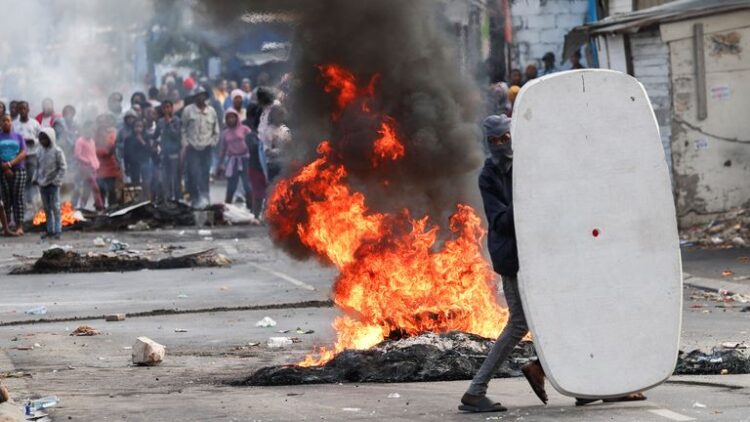By Ben Kerrigan-
A British doctor was shot dead in Cape Town after apparently taking a wrong turn from the airport during a violent minibus taxi strike.
The currently unnamed 40-year-old tourist was with two others when his car was approached by a group of people in a notorious neighbourhood of the city and he was shot. Police did not say whether his companions were hurt.
The 40-year-old British national was with two family members when he took the wrong turn and drove into the city’s Nyanga township, located near Cape Town international airport. A number of suspects approached his vehicle and killed him.
Nyanga is one of the most dangerous places in South Africa with 74 murders taken place every day.
Millions of workers and school children have been forced to stay at home due to the violence spiralling out of control.
In Ntlangano Crescent, a “number of suspects” approached his vehicle before fatally shooting him, said Lirandzu Themba, a spokesperson for the police minister. There have been no arrests.
Five people have been killed in the violence accompanying the taxi strike, which began on 1 August, police said
Nyanga is one of Cape Town’s oldest black townships and has previously been infamous as the country’s murder capital. The area was visited by the Duke and Duchess of Sussex during their 2019 South African tour.
A number of murders have taken place murders have taken place during a period of mayhem sparked by a week-long strike by minibus taxi drivers.
South African police said the protests on the outskirts of the country’s second-largest city have seen stone-throwing, road blockades, looting, arson and public violence, the South African Police Service said.
The taxis’ national union, which is angry at what it calls heavy-handed tactics by police and city authorities in impounding vehicles, said its members are not instigating violence.
South Africa has a fearsome crime rate, with the latest police statistics showing that there were close to 70 murders each day in the first three months of this year.
Government statistics show nearly 300,000 British tourists visited last year, down from more than 400,000 before the pandemic.
The killing happened on the first day of a week-long strike by the city’s minibus taxis. A total of five people have since been killed, including a police officer.
Foreign Office advice issued about the strike warned travelers to stick to main routes, saying: “These strikes have the potential to turn violent and may impact multiple areas including journeys to and from the airport.”
A travel alert from the British High Commission warned tourists in the city to be cautious of the protests and that “GPS services could divert you into less secure areas or into ongoing protests”.
Negotiations to end the strike have so far failed, with the Cape Town mayor saying he will not talk to those waging violence.
The strike has brought South Africa’s tourist hub to a halt, as taxi routes carrying many workers have been halted, roads blocked and some buses torched.
South Africa’s taxi union began the strike last week in protest at local authorities impounding vehicles for violations such as driving without a license or registration plates.
Taxi drivers alleged that the authorities were deliberately targeting them and impounding vehicles for minor infractions that might earn other drivers only a fine.
The city’s mayor has said the crackdown is to improve safety for commuters and has accused protesters of a campaign of violence to put pressure on the city. Vehicles have been stoned and at least seven city buses set alight. The main taxi union denies its members are responsible for the violence.
Minibus taxis are the main mode of transport for many in South Africa and the taxi network completes an estimated 1.5 million passenger trips each day in the Western Cape province which includes Cape Town.




